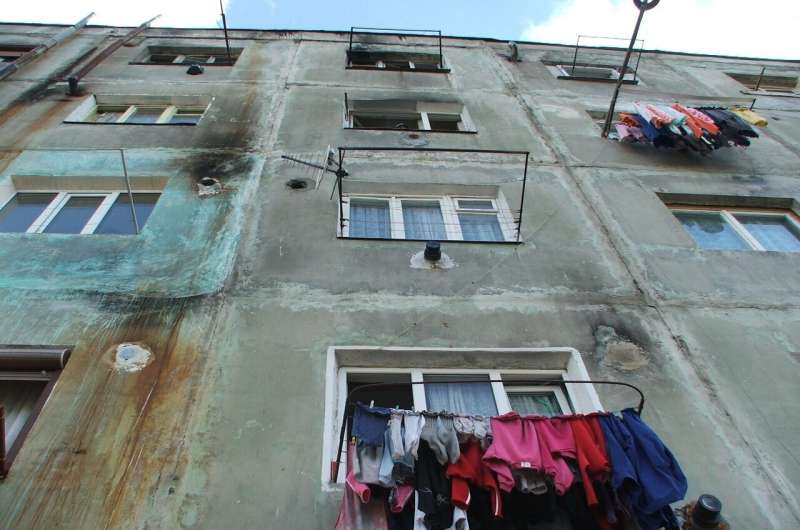This article has been reviewed according to Science X's editorial process and policies. Editors have highlighted the following attributes while ensuring the content's credibility:
fact-checked
trusted source
proofread
People in economically disadvantaged neighborhoods are both stuck and rooted, study finds

Policymakers may be thinking about economically disadvantaged neighborhoods too narrowly, according to new research led by Amy Spring, an associate professor in the Sociology Department at Georgia State University.
In their recent paper "Stuck or Rooted? Perspectives on the Residential Immobility of Children in the U.S. From Poor Neighborhoods and Implications for Policy" published in Social Sciences, Spring and co-authors Alexus Moore, Joy Dillard Appel and Austin Harrison, all Ph.D. recipients who recently graduated, found that the historical ways of thinking about people in disadvantaged neighborhoods are too narrow.
Using the same data analyzed in earlier studies, they were able to complicate the long-standing assumption that people are "stuck" in their neighborhoods to explain why they don't leave. Being "stuck" implies that people in these areas have no option but to stay, due to how difficult it is to leave for economic and structural reasons.
This narrative has influenced many policies in the United States aimed at alleviating poverty, the most well-known of these initiatives being housing vouchers. This idea was popularized by the book "Stuck in Place" by Patrick Sharkey.
However, Spring's team found these initiatives may not be completely effective. Oftentimes, families and individuals who do leave the area end up moving back for other reasons.
"In the Moving to Opportunity experiment, families were given vouchers to move to a different neighborhood," Spring said. "It was an experiment to see what would happen over time if people were given a ticket out. They found that a lot of those families ended up moving back, but they don't have comprehensive data as to why."
Another phenomenon, called rootedness, could help explain why. As opposed to stuckness, which implies that these families and individuals do not have the money to move, rootedness describes all the social and emotional reasons someone wouldn't leave an impoverished area. These include family, friends, familiar places, etc.
Rootedness is also a side effect of weak ties to societal institutions, which forces people to develop strong relationships with family members and neighbors out of necessity.
For their article, the team used data from the 1997 Panel Study of Income Dynamics (PSID) and the Child Development Supplement, a follow-up survey that gathered more socio-demographic, psychological and economic information about children who participated in the original survey.
In addition, they also used data from 1999 to see whether the families who participated in the 1997 PSID moved in the following years. Though it was conducted almost 30 years ago, Spring explained they used this survey for a couple of important reasons.
"This PSID was used in the book 'Stuck in Place,' so we can tell the counternarrative with that same data. The other reason we used the 1997 survey is because it was the year they asked particular questions about people's social ties to the neighborhood," Spring said.
"They asked things like how many children's names do you know, how many friends do you have in this neighborhood. Unfortunately, they didn't continue to ask those questions, though the survey still happens every two years."
Based on their analysis of this data, Spring's team found that most families surveyed were both stuck and rooted in their neighborhoods.
"We found that immobility is most strongly associated with the household head lacking a high school education, which is something that is pretty well-known … The new variable is the number of social ties in the neighborhood," Spring said. "They're both important."
Despite their findings, Spring said coming up with solutions to this problem isn't easy and more research is necessary.
Appel added, "It's hard to come up with something that feels simple enough to actually make it practical but also able to address all the nuances of the problem. We're humans, and our stories are complicated."
More information: Alexus Moore et al, Stuck or Rooted? Perspectives on the Residential Immobility of Children in the U.S. from Poor Neighborhoods and Implications for Policy, Social Sciences (2023). DOI: 10.3390/socsci12100553
Provided by Georgia State University




















